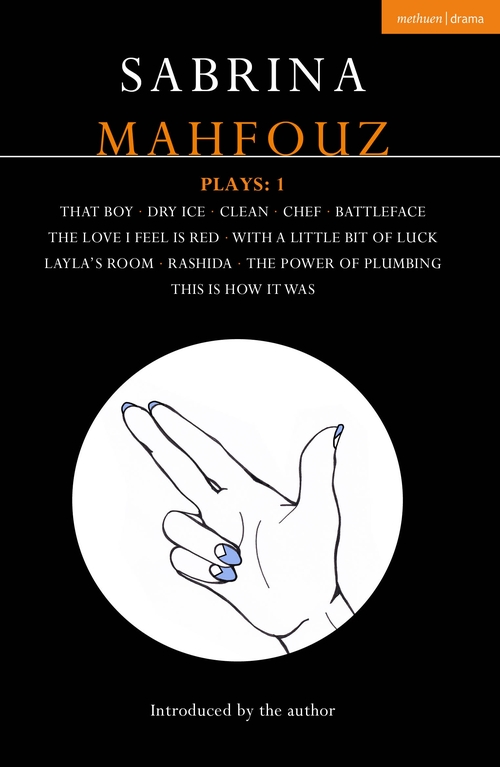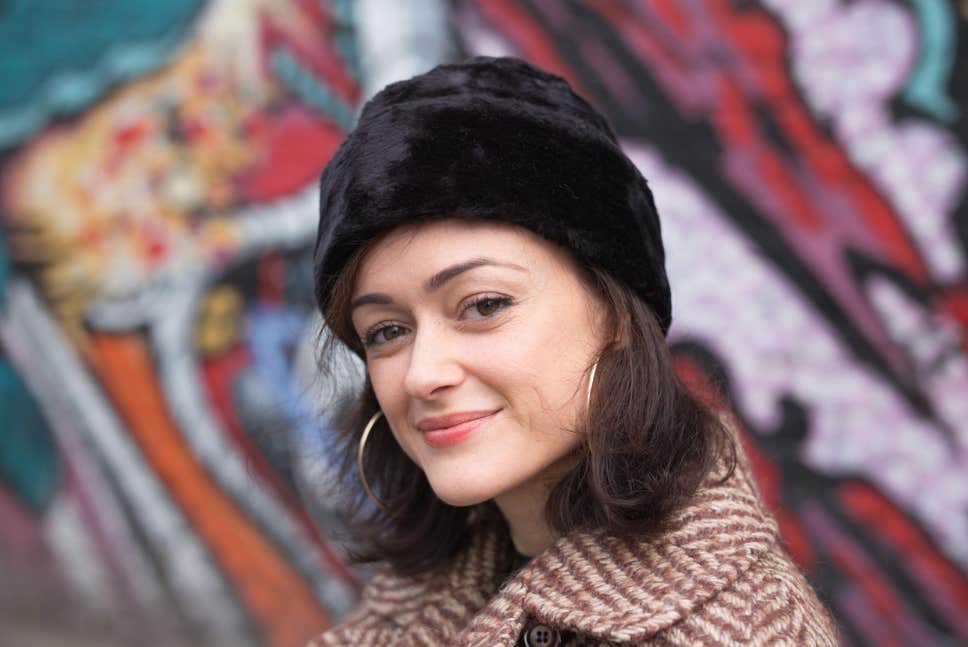
Sabrina Mahfouz has recently been elected a Fellow of the Royal Society of Literature and is the recipient of the 2018 King’s Alumni Arts & Culture Award. She has won a Sky Arts Academy Award for Poetry and a Westminster Prize for New Playwrights.
Sabrina’s theatre work includes Chef, a Fringe First Award winner; Dry Ice, for which she was nominated in The Stage Awards for Acting Excellence; With a Little Bit of Luck, which won Best Drama Production in the BBC Radio & Music Awards 2019; Clean, a Herald Angel Award winner which transferred to New York and her adaptation of Malorie Blackman’s celebrated YA novel Noughts & Crosses for Pilot Theatre tours the UK throughout 2019. At the end of 2019, Sabrina’s A History of Water in the Middle East had a sold out run at the Royal Court’s Jerwood Theatre Upstairs.
Sabrina is the editor of The Things I Would Tell You: British Muslim Women Write, a 2017 Guardian Book of the Year and Smashing It: Working Class Artists on Life, Art and Making It Happen. She’s an essay contributor to the multi-award-winning The Good Immigrant and is currently writing a biopic of the rapper and producer Wiley, for Pulse Films.
Urgency and truthfulness
PC: What is theatre?
SM: Theatre, for me, is a live storytelling experience. It’s different to other forms because you’re there and you experience it within a group. Although, I have watched theatre on a virtual reality headset and NT Live screenings and I really enjoyed them, but it was filmed live. So, I don’t know if it has to be experienced live but the liveness of the experience somehow comes across even if it’s recorded. I feel like that gives it an urgency and a truthfulness.
PC: How does it feel different to a performance poetry setting?
SM: It’s potentially just to do with the length. If something’s five minutes, then it’s a performance poem but if something is an hour, in exactly the same style, it somehow morphs into a theatre piece.
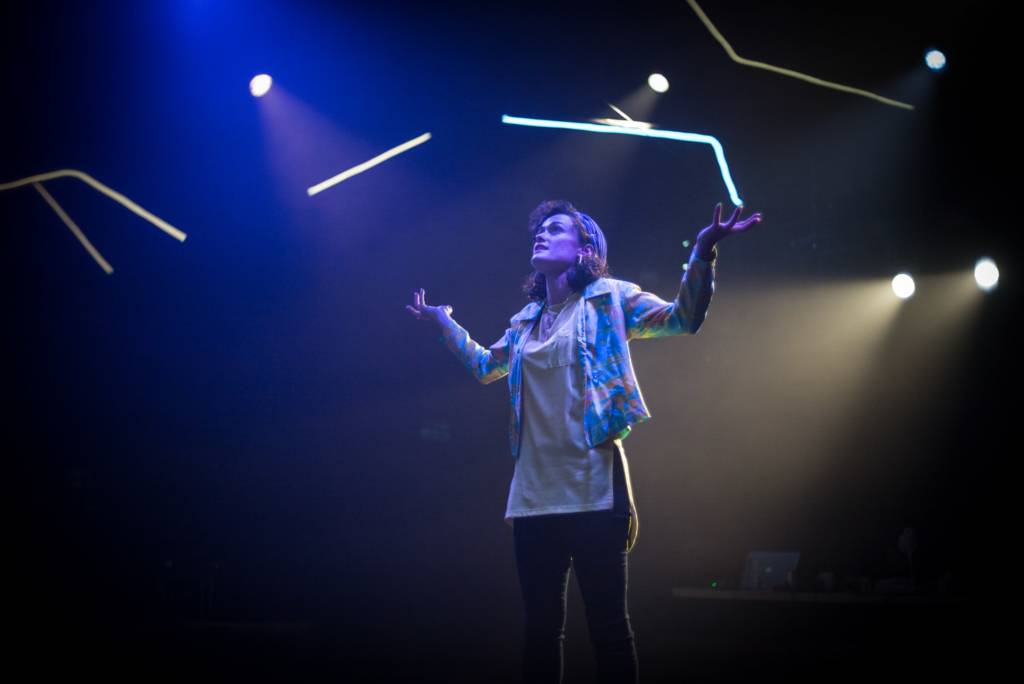
Photo by Craig Sugden
Control and power
PC: You foreground that liveness in your plays by weaving together time; you draw attention to the present moment and then there are autobiographical elements mixed with fictional stories. How does the fictional and the autobiographical inform your writing for theatre?
SM: One reason why I really like theatre, as opposed to other things, is that you’re able to draw attention to the fact that it’s theatre in a way that is fully accepted within the art form. You might occasionally get that on really arty films or some experimental TV or comedy stuff but it’s much more rare. There’s a real tendency to just go with ‘suspend your disbelief’ and if we can’t do that then we’ve failed. Whereas every single play that I’ve had creative control over, I’ve always had a moment of the main character talking to the audience and letting them know that this is something that has been created for them to experience at this moment. I just find a general discomfort with pretending that the audience aren’t there and pretending that we’re having this sort of cocooned world building happening.
The autobiographical things are potentially a defence mechanism, because if you just put that on stage as if it is actually real, then I feel like that would be more exposing and triggering and uncomfortable. It’s about keeping control of what it is you’re allowing people to see, because it can sometimes feel like you’re expected to give over your entire life experience, especially if you’re someone from a background that isn’t necessarily the same as the ones they’ve been used to.
PC: Fiction and autobiography collide most explicitly in Dry Ice and the centrality of the strip club – is there a point in your plays when you try to disrupt ideas of autobiography?
SM: Yeah, I think that’s partly on purpose, but it’s also so embedded in what I want out of work myself that it just happens without me really thinking about it. Studying literature through school, college, university, I was always quite frustrated by how much attention was put on the context of the work in terms of who wrote it and why and what they were doing in that time. I didn’t realise this at the time, but looking back, it’s because 98% of the work that we were studying was written by white men. There was a fascination with their lives (who they were and who they married) that made the work more and more distanced from me. But, originally, I connected to the work itself. To know more and more about the person behind the work was not always useful.
I suppose I’ve wanted to subvert the fascination with sex work and low-level criminality. These are worlds that have not been given a huge amount of attention, especially in theatre, beyond total stereotypes. It’s complicated because theatre is still a white, middle class dominated industry, so there’s always a pressure and an expectation to write those things in a way that’s interesting to them. Again, it’s about control and power: I’ll give you this, but I’ll also keep something for myself.
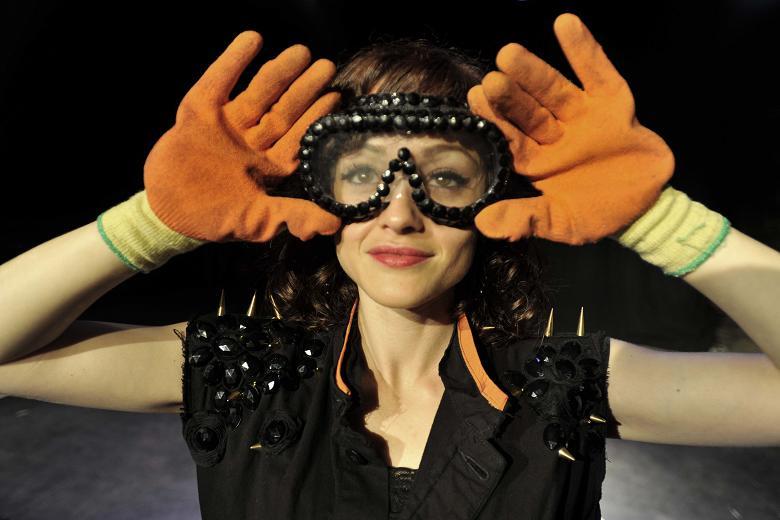
Photo by Robbie Jack
Beyond empathy
PC: Do you use voyeurism in a way? You give the audience some of that stereotyped world but then there’s a pivot and you say, “No, I haven’t given you that at all.”
SM: Yeah, although I have, just tiny bits, because theatre is voyeuristic. Maybe all storytelling is voyeuristic to an extent, but I think that it’s how much negative or positive intent is associated with that voyeurism. Voyeurism is generally thought of as negative, but I think that it could also be curiosity and a wanting to learn.
Dry Ice was an exploration of voyeurism because at the time people constantly questioned me about that world when they found out that I worked in it. I totally understand that, but you start to recognise the things that people get more excited about and less excited about. The character (Nina) tells these stories that go to completely surreal, abstract and unbelievable places in a way that was playing with that voyeurism really: Is this what you want to hear? Is this how far that you want people to go with it? Theatre allows you to get to that nuance quickly, whereas, I find writing about that stuff for screen hard because you’re not as able to be so surreal and abstract.
PC: Does that nuance increase the possibility for empathy?
SM: I don’t know, if I read a novel, I empathise rather than insert myself, whereas, with theatre, I can really feel as though I have experienced something close enough to the thing that the person on stage is experiencing to go beyond empathy. But I don’t know what the word for that would be.
PC: Whatever it is, that connection makes the work political. How do you balance the anarchic elements of revolutionary politics with the more constructive elements of permanent change?
SM: It’s really hard. I think that much of the art in this country is depoliticised, not by the artists themselves, but by the way it is marketed, reviewed, received. Obviously, we have a freedom to pretty much make anything we want but if it does get a mainstream or a large-scale platform it will be depoliticised in some way. That was what was so great about doing A History of Water in the Middle East, there was absolutely no way that anybody could try and say that it wasn’t political. Most people have skirted around the politics of everything I’ve done previously. The politics just gets absorbed into: ‘This is a universal story that resonates with people who are suffering X Y Z.’
That’s one of the problems with storytelling nowadays: saying that this is a universal story of a person overcoming a problem or suffering but still managing to achieve X Y Z. That’s just putting all the responsibility on to the individual, as if somehow, if the individual is just strong enough, or if the individual has enough talent, they will transcend anything that’s put upon them. That totally takes away from the fact that society has been built around them to make them fail. The politics of the world we live in is not set up for it to be possible for the majority of people to transcend where they are. If they even want to! But unless you explicitly state that at the start of the thing it won’t be taken into account.
I think putting these characters on stage is already a transformation. People probably haven’t had the opportunity to hear a person like this speak directly to them, uninterrupted for an hour before. I feel like that in itself is transformative already. So, if the biggest transformation has already happened, we don’t have to do the whole, “I’m going to be a different person now.”
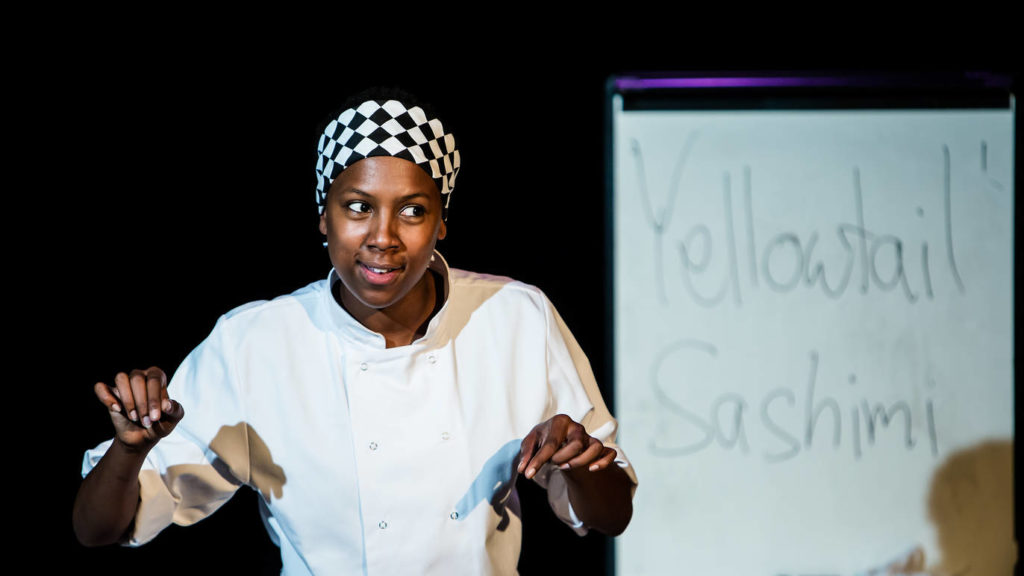
Photo by Richard Davenport
Visceral rhythms
PC: You generate a huge amount of material; how do you go about selecting and honing your work?
SM: Everything that I write, I hear first. I try to get what I can hear in my head as authentically down in words as I can. It’s only when those words are then said out loud in the context of all the other words that I’ll know if that really feels like the thing that they were supposed to say. Also, I write so much that I’m repeating myself, so you just take out some of those repetitions because you’ve already given them that information.
PC: If you have a repetition, how do you know which of those is the best utterance of that information?
SM: Partly, it’s the one that says the most with the least amount of words but still sounds satisfying. Ultimately, it’s instinctive because I know the characters by that point. But, if there’s a phrasing that I really enjoy the sound of, and I don’t want to lose it, I do recycle, and I try to find another place to put it. The character isn’t king, queen and everything, it’s definitely sometimes, “No, I like that phrase, we’ll definitely find a place to put it.”
PC: There’s a quality to your writing where I’m reading it or watching it and I glide with the rhythm and the pace and the rhymes, but then a line comes along that’s a real gut punch. Why are words so powerful?
SM: I think rhythm is particularly powerful. You can listen to a piece of music with no words and you can feel an emotional gut wrench at the end because the rhythms of that music are in tune with the universe and your body and your mind. Everything has its own rhythm, and everything has its own tune and harmony. Bringing that all together just creates something transcendent, with all my anti-transcendent talk before! I’m not anti-transcendent when it comes to that sort of thing. When you use rhythmic, lyrical language you’re borrowing from that musical ability to emotionally manipulate somebody because it connects you viscerally. That gut punch moment happens because you’ve taken someone somewhere without them being conscious of going there.
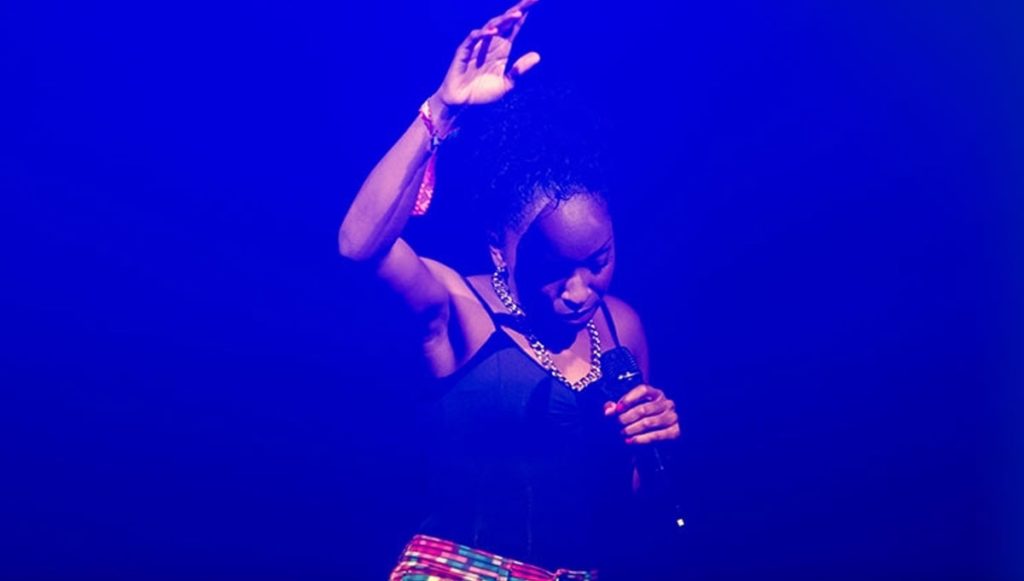
Photo by Richard Davenport
The resolved and the unresolved
PC: Expectation around the protagonist’s actions is something you play on. You set a character up to behave in a certain way and then they don’t. Beneath the poetic surface there are carefully constructed actions that aren’t always resolved. Why is the idea of resolution so important?
SM: I think it’s linked to my reticence to perpetuate that self-transcendent narrative. We’ve got so used to these stories where there are characters going on a journey and they’re going to be different people by the end. I don’t really feel like that’s a necessity. People don’t always become different people, they expand as people, because they have more experience and they have more opinions, but do they fundamentally change? Some people might, but not all the time, so why would that be the only story that’s interesting? I like to push those moments, so instead of a moment where the character has this big self-realisation, I just like to finish. The idea of always having a resolution is just what we’ve inherited as a storytelling tradition.
PC: There are stories in your plays that have resolutions, but they’re told by your main character. You give the audience moments of resolution that play to those inherited ideas of pleasure that are particularly palatable to an audience, but then your main characters’ stories are very purposefully unresolved. Why do you think you play the idea of resolution off against the idea of things left unresolved?
SM: I suppose it’s my version of hope.
Further information: sabrinamahfouz.com
